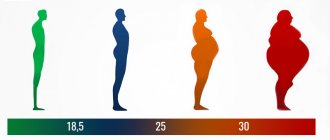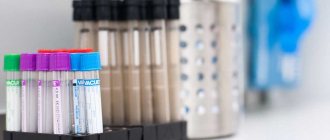15.06.2018
Increased salivation in an adult is a symptom of inflammation or disease of the gums, teeth or internal organs. It is important not only to eliminate excessive salivation, but also to correctly determine its cause, otherwise the recovery will be temporary.
Salivation is considered normal if the volume of saliva does not exceed two liters per day. It is involved in digestion, washing away pieces of food, remnants of drinks and bacterial activity from the teeth. Normally, the process of salivation is invisible to humans - we do not pay attention to it, like, for example, breathing. But if a failure occurs, then too much saliva causes discomfort.
With this disease, saliva accumulates in the mouth too quickly; you constantly have to make sure that it does not leak out and spit. It is inconvenient, unaesthetic, spoils the mood and causes discomfort. In the article we tell you what are the causes of increased salivation in men and women and how to treat it.
Increased salivation: causes and treatment
Hypersalivation - what is it?
Why is there a lot of saliva in the mouth?
Salivation during sleep
Excessive salivation during pregnancy
Treatment of hypersalivation
Saliva is not just a liquid secreted in the mouth. Saliva is involved in the digestion process and protects the body from bacteria. The process of salivation is not controlled by humans. Usually about 2 liters of saliva are produced per day. Under the influence of certain factors, its amount can greatly increase. In this article we will talk about the causes of increased salivation and how to treat it.
What medications will help?
Saliva production is a natural process controlled by the autonomic nervous system. Its violations are evidence of either general health problems or pathologies of individual organs and inflammatory processes in the oral cavity. Let's take a closer look at the causes and treatment of excessive salivation in adults. If excess fluid in the oral cavity reduces the quality of life, in addition to general therapy, the doctor prescribes symptomatic treatment - anticholinergics:
- scopolamine;
- riabal;
- platiphylline.
Scopolamine has fewer contraindications - only glaucoma. Platiphylline has glaucoma, organic kidney and liver diseases. Riabal is taken during pregnancy, but it is contraindicated for problems with the prostate, gall bladder and kidneys, intestines, cardiovascular system and many other diseases. Platyphylline has the least side effects - dry mouth, blurred vision, difficulty urinating and rapid heartbeat.
A quick but temporary effect is achieved by intramuscular injections of Botox into the area of the salivary glands - in the cheeks and cheekbones. Botox blocks the nerve signals that the salivary glands transmit to the brain, and due to this, a strong response to irritation of the glands does not occur and saliva is not released in large quantities. Facial massage is useful for hypersalivation of a neurological nature.
Why is there a lot of saliva in my mouth?
Let's consider the possible causes of increased salivation
| Oral diseases. These include: stomatitis, gingivitis, glossitis, etc. Bacteria provoke irritation of the salivary glands, hence the excessive secretion of fluid. If these diseases are not treated, inflammation of the salivary gland may occur. |
| Having dentures or braces. The structures cause irritation of the mucous membrane, which provokes excessive secretion of fluid. This problem is especially noticeable in the first two weeks after installation of the structure, when adaptation occurs. |
| Gastrointestinal diseases (gastritis, pancreatitis, stomach ulcers, etc.). The problem most often occurs against the background of increased stomach acidity. Other reasons that doctors highlight: liver dysfunction, worms, stress on the pancreas. |
| Diseases of the central nervous system (cerebral palsy, Parkinson's disease, irritation of the trigeminal nerve, migraine). A similar condition occurs when the functioning of the vestibular apparatus is disrupted and blood pressure increases. |
| ENT diseases, ARVI, inflammation of the adenoids. The person begins to breathe predominantly through the mouth, as nasal breathing is difficult. The mucous membrane dries out, causing the glands to begin to work actively. |
| Changes in hormonal levels - problems with the thyroid gland, diabetes, menopause, etc. |
| Smoking. Tobacco smoke irritates the salivary glands. They begin to produce a lot of fluid. This is why smokers have the habit of spitting. |
What types of problems do experts identify?
Dental experts identify 2 main forms of the symptom. So, hypersalivation can be of the following types:
- true - too intense fluid production is noted, and the phenomenon itself becomes a consequence of external or internal factors,
- false - the problem is not the increased production of saliva, but the difficulties associated with swallowing it. This may be due to diseases of the brain, disturbances in the functioning of the masticatory muscles, or serious injuries in the area of the maxillofacial apparatus.
Increased secretion of the salivary glands occurs in the morning, afternoon and night. So, for example, in the first case we are talking about a completely natural phenomenon, but a symptom that occurs mainly at night most often indicates problems in the functioning of the stomach and intestines, the presence of worms. Before and during meals, intense production of fluid in the mouth only indicates an increased feeling of hunger and good appetite. When the phenomenon becomes paroxysmal, this may indicate emotional overload.
Salivation during sleep
Sometimes, when a person wakes up, he notices wet spots on the pillow. This usually happens due to extreme fatigue and sound sleep. However, if salivation during sleep becomes a pattern, you should consult a doctor.
The main factors that provoke the secretion of saliva during sleep.
- Malocclusion or missing teeth. Saliva flows out because the teeth do not close completely.
- Difficulty in nasal breathing: runny nose, deviated nasal septum, colds. All this forces you to breathe through your mouth. Since the lips do not close, the accumulated fluid flows out. This is often accompanied by snoring.
- Deep sleep.
Characteristic symptoms
Increased salivation is usually accompanied by other symptoms, which can help roughly determine the source of the problem. Thus, in medical practice, various forms of hypersalivation are distinguished, aggravated by other pathological phenomena - let’s look at the main ones.
Increased saliva production during sleep
When a person sleeps, saliva production slows down and becomes less intense. But sometimes the salivary glands “wake up” before their owner, and then in the morning you can find a wet spot on the pillowcase. If this is only a periodic phenomenon, there is nothing to be afraid of. This may be associated with a mild cold and runny nose, which makes it difficult to breathe through the nose. However, such a symptom can also be the result of an incorrect bite or loss of part of the teeth - here you need the help of a dentist.
There can be different reasons for salivation during sleep.
When the symptom is complicated by gagging
When hypersalivation is accompanied by frequent vomiting, this may indicate injury to the vagus nerve, inflammatory processes in the pancreas, the development of gastritis and stomach ulcers. Also, a similar combination of symptoms occurs in women during pregnancy against the background of toxicosis. To determine the exact cause, you must consult a doctor.
Hypersalivation after eating
The production of saliva becomes more intense before and during meals - this is a completely natural phenomenon. It’s another matter if the symptom does not go away even after a meal. This often indicates the presence of worms in the body. Parasites can affect virtually any organ, from the stomach and intestines to the lungs, heart and brain. Other characteristic symptoms include loss of appetite and increased fatigue.
Uncontrolled secretion of the salivary glands in combination with belching
This condition is usually observed when there is a problem with the functioning of the stomach. In this case, the belching may be sour or with a bitter taste, and is often combined with the release of mucous fluid. If the passage of the food tract is obstructed, excessive salivation is aggravated by a feeling of a lump and difficulty swallowing. Here you definitely need the help of a specialist.
Sometimes this condition occurs due to problems with the functioning of the stomach.
When the symptom is combined with a sore throat
This combination of symptoms is characteristic of lacunar tonsillitis. Other signs of the disease include high temperature, fever, general loss of energy and severe headache. During the examination, the doctor may detect redness and swelling of the tonsils, whitish plaque, and enlarged lymph nodes.
Increased salivation during a conversation
Sometimes the problem is associated with dysfunction of the oral muscles - this situation occurs with cerebral palsy and certain neuralgic disorders. If you produce too much saliva during communication, in some cases this signals a hormonal imbalance - thyroid disease, disruptions of the endocrine system, including diabetes.
Features of the development of hypersalivation in women
In the first stages of menopause, many women encounter this unpleasant phenomenon. Along with intense secretion of the salivary glands, increased sweating and hot flashes are observed. This is due to hormonal changes in the female body, and all inconveniences go away on their own, usually without requiring the intervention of specialists.
When menopause occurs, many women experience this unpleasant phenomenon.
Hypersalivation in infants and older children
It was already mentioned above that excessive drooling in the first year of a child’s life is a normal situation that does not require medical help. The reason for this is an unconditional reflex factor, and over time the problem goes away on its own. Next time, hypersalivation may overtake the child during teething. In all other cases, excessive secretion of salivary fluid will indicate certain disorders, for example, diseases of the nervous system, brain injury, gliss.
In children, this problem often occurs during teething.
When the problem occurs during pregnancy
Many women develop toxicosis during pregnancy, which is often accompanied by hypersalivation. Other accompanying symptoms include heartburn, dizziness, and nausea.
“I had this happen around 35 weeks. I began to notice that too much saliva was forming in my mouth. In the mornings it was a total nightmare, the pillow was all wet. Heartburn also began to plague me often. But the doctor reassured me, said that everything would go away on its own, and didn’t find any problems. She prescribed vitamins and said that you need to be less nervous..."
Alenka25, Moscow, from correspondence on the woman.ru forum
The problem can also be caused by insufficient intake of vital vitamins and microelements into the body and, as a result, a drop in immune defense. Taking a multivitamin complex prescribed by a doctor, as well as proper nutrition, will help restore balance.
Excessive salivation during pregnancy
During pregnancy, hormonal changes occur in the female body. The main reasons why an expectant mother’s salivation increases.
- Heartburn. When the acid-base balance in the stomach is disturbed, the body begins to produce a lot of saliva. This is a defensive reaction.
- Reaction to medications.
- Toxicosis. To stop gagging, the expectant mother tries to swallow saliva less often. Therefore, it may seem that there is more saliva in the mouth than usual.
A large amount of saliva does not threaten the fetus, however, if this is a consequence of any disease, then the pregnant woman should monitor her condition.
What complications are possible?
- Impaired taste perception of food.
- Dehydration of the body.
- Insomnia, disturbance of psycho-emotional state.
- Deterioration of the skin condition on the face and body.
- Infectious diseases.
The role of saliva
As experts explain, saliva performs several important functions at once: it washes away food debris from the teeth, softens food, facilitating its subsequent digestion, and even supplies teeth with calcium, strengthening them. Indeed, chronic dry mouth is often a harbinger of caries. However, our body must produce exactly as much saliva as is necessary to ensure these important processes, and not a drop more. Drooling and the need to constantly swallow saliva can be signs of increased saliva secretion, which can cause a lot of discomfort.
Treatment of hypersalivation
There is no single treatment method for all cases. However, you can use methods to reduce the activity of the salivary glands - sometimes they are recommended by doctors as an addition to complex therapy.
- Reception of sorbents: activated carbon, polysorb, etc.
- Taking medications prescribed by a doctor.
- Exercise therapy, massage (most often prescribed for children).
- Botulinum toxin injections.
In rare exceptions, the salivary glands are partially removed, but the downside is that there is a risk of damaging the facial nerve.
Which doctors will help you cope with this disease? Dentist, gastroenterologist, endocrinologist, neurologist, infectious disease specialist, etc.
How is diagnostics carried out?
We found out what may cause hypersalivation and whether the symptom is necessarily a signal of a pathological condition. Obviously, due to the abundance of possible prerequisites, it can be quite difficult to independently establish the true cause. Therefore, if appropriate signs appear, you should consult a doctor. As part of the examination, the following manipulations are usually performed:
- taking an anamnesis, during which the specialist clarifies the duration and characteristics of the symptom, finds out information about possible chronic diseases, heredity, professional activities and bad habits,
- visual examination and assessment of the condition of the oral cavity for injured areas,
- functional analysis to determine the amount of salivary fluid secreted,
- consultation with specialized specialists: dentist, parasitologist, gastroenterologist, etc.
Only a specialist can make the correct diagnosis.
It is impossible to prescribe effective treatment without first identifying the causes. Remember: trying to get rid of increased salivation on your own can lead to unforeseen consequences.
Preventive measures
The manifestations of hypersalivation can be avoided if you take a responsible approach to the health of the oral cavity and the body as a whole. It is important to pay attention to the prevention of diseases that can lead to excess secretion of the salivary glands. First of all, you need to ensure high-quality oral hygiene, regularly visit the dentist’s office for preventive examinations, eat right and lead a healthy lifestyle. If signs of infectious infection, diseases of the teeth and gums, or disturbances in the gastrointestinal tract are detected, you should urgently contact an appropriate specialist.
- Leontiev V.K. Changes in the structural properties of saliva with changes in pH, 1999.
Methods of combating pathology
If you are thinking about how to get rid of increased salivation, then you need to understand that there is no single treatment plan for all patients with this problem. After all, pathology is caused by various reasons and diseases.
However, there are methods by which doctors suppress excess saliva production. They are used to eliminate an unpleasant symptom and always in complex therapy aimed at treating the underlying disease that caused hypersalivation:
- taking enterosorbents: for example, activated carbon or polysorb,
- medicines: we intend not to list their names, because... drugs have a list of contraindications for use and side effects. They should only be prescribed by a doctor, in fact, like other treatment methods, based on the specific cause of the pathology,
- courses of facial massage and exercise therapy, articulation gymnastics: these measures are quite often prescribed for children,
- botulinum toxin injections1: block the activity of the glands for a short time (6-8 months),
- cryotherapy.
Only specialists can prescribe drug treatment for pathology.
When conservative therapy does not produce positive dynamics, doctors resort to surgery and selectively remove the salivary glands. However, such a measure is the exception rather than the rule, because it carries certain risks, such as damage to the facial nerve.
To quickly stop bothering you with an unpleasant symptom, you also need to follow a diet. It is necessary to exclude acidic foods and starchy foods, bread, potatoes and pasta from the diet. You can rinse after meals with a decoction of chamomile and oak bark, or a decoction of viburnum berries.
Notice
: Undefined variable: post_id in
/home/c/ch75405/public_html/wp-content/themes/UltraSmile/single-item.php
on line
45 Notice
: Undefined variable: full in
/home/c/ch75405/public_html/wp-content /themes/UltraSmile/single-item.php
on line
46
Rate this article:
( 19 ratings, average: 4.21 out of 5)
prevention
- Rakhmatullina E.F. Botulinum toxin type A in the treatment of autonomic disorders. Practical medicine, 2013.
Trigeminal neuralgia
Experts say that hypersalivation is a sign that always indicates irritation or excitation of one of the branches of the trigeminal nerve. This simply happens for various reasons: due to mechanical injuries, internal diseases of the body, paralysis, rare neurological pathologies (for example, lateral sclerosis), brain tumors or cerebrovascular accidents, migraines. And even due to increased blood pressure.
With inflammation of the ternary nerve, this symptom also appears
“My mother recently suffered a stroke, after which a lot of saliva began to accumulate in her mouth, and it even poured out, but the doctor said that this is a normal condition after such an illness, and has nothing to do with hypersalivation. It’s just that her muscles and swallowing reflexes have weakened, and she has difficulty swallowing food...”
Olga, review from the woman.ru forum
Availability of prostheses and other structures
If you have just recently installed dentures or, for example, braces, this may explain why there is a lot of saliva in your mouth. It’s just that the sensitive mucous membrane is not yet accustomed to finding a foreign object. Constantly in contact with him, she becomes irritated, which leads to increased secretion production. After the adaptation period (after about 2-3 weeks), the situation should normalize.
The presence of orthodontic structures in the mouth can cause increased salivation
Most often, patients who wear removable dentures complain about the problem. Many of them fail to get used to the structures even after months of use, because the dentures are not securely held in place, can move, constantly rub the mucous membrane, and put pressure. In general, they have a mechanical effect on sensitive receptors in every possible way.
“I understood why I had a lot of drool in my mouth almost immediately, because shortly before that I had to have my teeth removed due to a serious illness. The problem really bothered me at night: at first I couldn’t fall asleep for a long time, and in the morning the entire pillow and blanket around my chin were wet. And this is understandable, there was nothing to retain the liquid, it flowed out freely while you were sleeping relaxed. During the day he wore removable dentures, and at night he took them off, because... it was even more uncomfortable than without them. Now I’ve installed dentures on implants, and, thank God, I forgot about the problem, like a bad dream.”
Nikolaev K., review from the dental portal gidpozubam.ru
What does traditional medicine offer?
In some situations, when the source of the problem is not such a serious pathology, traditional medicine helps reduce the intensity of the salivary glands. Here we must immediately make a reservation that such recipes can only be used after consulting a doctor and making an accurate diagnosis. So, let's look at the most effective tips.
Quince decoction
The fruit must be thoroughly washed, then cut into small pieces and placed in a pan. Pour quince with a liter of water and put on fire, boil until about half of the liquid has evaporated. After this, you need to add 50 g of sugar to the pan and continue cooking until it is completely dissolved. The decoction should be filtered and taken orally in small portions throughout the day.
Quince is often used for treatment
Infusions from healing herbs
Take one tablespoon each of nettle, St. John's wort and serpentine rhizome, mix together and pour 600 ml of boiling water. Next, the mixture needs to be put in a dark place and left there for at least a couple of hours - the product needs to infuse. After this, the tincture must be filtered and then used as a mouth rinse, preferably every time before meals.
Water pepper tincture
You need to take the pharmaceutical composition of water pepper, namely one teaspoon of the ingredient. Pour the product into a glass of warm water and use it as a mouth rinse after each meal. The course lasts on average about 10 days.
Chamomile decoction
Take one tablespoon of dried chamomile flowers and pour 50 ml of boiling water. Place the resulting substance in a dark place and let it brew for at least 40 minutes. After this, the broth should be filtered and then used to rinse the mouth 3-4 times a day.
Chamomile decoction helps well in treatment
Comments
The child is drooling from his mouth, although he is already 4 years old and all his teeth have long come out. What could cause such hypersalivation?
Galina (01/19/2020 at 11:05) Reply to comment
- Dear Galina! Pay attention to exactly when your baby drools. Some children suffer from this problem when they are engrossed in some interesting game or cartoon. If this is so, then, most likely, the child simply does not yet know how to control his reflexes and does not draw in saliva in time. In this case, we are not talking about hypersalivation as a pathological process. You just need to teach your baby to swallow saliva and pay attention to it. If drooling occurs regardless of the child’s condition and behavior, or time of day, then it is recommended to contact a pediatrician to be examined.
Editorial staff of the portal UltraSmile.ru (01/23/2020 at 09:26) Reply to comment
Write your comment Cancel reply
Signs and symptoms
Saliva performs a number of functions:
- ensures normal sound pronunciation;
- supports the perception of taste;
- makes it easier to swallow food.
With increased salivation, its functions are impaired. There are complaints about changes in taste sensations - tastes are felt either not fully or too pronounced, a perversion manifests itself - a taste disorder. Due to excess fluid in the mouth, problems with diction also appear.
Salivary glands
Clinically, excessive salivation is diagnosed simply: if a person produces 2 ml or more of saliva in five minutes, the diagnosis is confirmed, since normally there should be up to two.
It is important for the doctor to distinguish true increased salivation from false, in which patients complain of excess saliva, but in fact no more than 2 liters are secreted per day. This reaction is caused by trauma and inflammation of the oral cavity - for example, burns of the tongue and mucous membranes by boiling water, pericoronitis, which causes swallowing problems, etc.
Which specialist should I contact for help?
If copious salivary secretions are washed off into the mouth, and the symptom does not go away during the day, you need to consult a specialist. The problem may well indicate some kind of internal disorder, so the sooner you react, the higher the chance of starting treatment on time, without waiting for complications to develop. In such a situation, you need to consult a dentist or therapist. After the initial examination and diagnosis, if necessary, the doctor will redirect you to a specialized specialist, for example, a gastroenterologist, parasitologist, etc.









